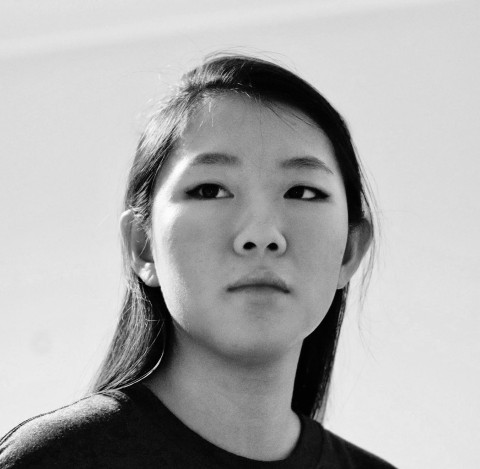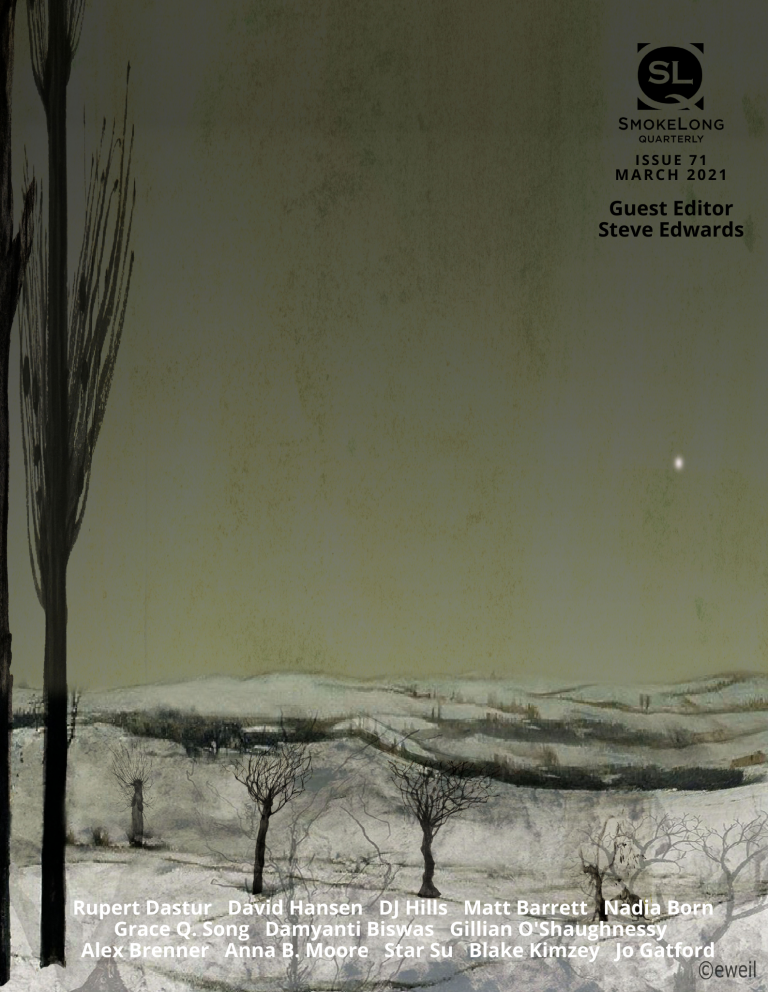The Catskills have a storied history. How did your own connection to the area translate in this fictional micro’s setting and story?
As someone who grew up in New York City and currently lives in Long Island, upstate New York was (and in some ways, still is) a mystery. My eighth-grade social studies teacher told me it was mostly rural, with a few exceptions. In Earth Science class, we studied different rocks and looked at a bedrock genealogy of New York state divided into sections showing rock types, periods, and eras. The patterns for the land north of Manhattan and along the Hudson River, including the Catskills, looked complicated and fascinating with many rock types from different time periods.
That year was also around the time when I began going to a Catskills summer camp. I’ve been there with my sister for the past five years. The camp has a huge, beautiful lake, and one year, a family of swans settled there. I love how far away it is from the city; the isolation helps you focus on the meaningful things in life. Similarly, I figured that was what the narrator and her father in my piece needed: to be in a special, quiet place in order to reflect on what had happened and, in doing so, experience something important.
Though I used the location and scenery of my summer camp as the piece’s setting, the two aren’t exactly the same. One difference is I usually don’t get mosquito bites there, though I’m not sure if that’s because of the amount of bug spray or because bats and dragonflies hunt them down to a controllable size.
In a small space, each word has impact—you skillfully use memorable phrases like “fished gold foil chocolate” and “the lake gasps open.” I also counted forty-two letter Ls in 182 words. How do you approach adding repetitive lyricism to your writing? How did you choose the weighty title?
I love micro for that reason—I have a very small space, so each word has to count! (This is actually quite similar to poetry, in my opinion, where each word has to be just right).
Sound is definitely something I pay attention to in my prose. It wasn’t intentional to have so many Ls in my piece, but there were definitely phrases like “a cloudless palm of blue” or “the hook glinting like a silver eye” where I was actively shaping the sound. I don’t think that sound/lyricism needs to be on the forefront of every prose piece I write—each one is different and has a personality. A writer needs to listen to how it wants to say what it wants to say—but I thought the lyrical nature of this micro was appropriate because of the lake setting and references to water, fishing, and movement.
I was also surprised when you said my title carried weight, but I realized it does, compared to my other prose and poetry titles. Inheritance is a big deal in society and throughout history. Coming up with the title, I didn’t start with “Inheritance.” The first title was “August,” but I ultimately thought it was too weak. Then, I changed it to “Miracle Man,” but that felt too cliché. When I consider titles, they need to “prove themselves” to “get the job” (yes, I am the teacher/boss in three-inch heels and black suit who walks around with a stick). When “Inheritance” came along, I thought about it and tested it—why “Inheritance”? Does it fit? Does it add/deepen my piece? If so, how? I realized it could be a double meaning—inheritance for the speaker in a positive, tangible sense, but also an inheritance that’s potentially emotional and negative.
As Polyphony Lit’s executive editor, how do you approach poetry, prose poetry and prose? This micro feels like it straddles all three forms. Further, what do you personally look for in submissions?
As someone who writes poetry and prose, the lines definitely blur, so I can see why you said this micro feels like “it straddles all three.” If I’m not feeling it with a particular piece, I’ll also shift it from one form into another. There have been poems that turned into micros, prose pieces that became prose poems. One forthcoming short story was a novel, poem, short story, and flash at one point. I’m not really concerned with what form a piece will be, though, I’m more concerned with what the best form for the piece will be.
In terms of what I look for in submissions, I like to be surprised. I like pieces that are fun and strange, but I also like emotional gut punches and stories with a narrative arc. My taste in submissions, similar to my taste in music, is a little all over the place.
Congrats on the Best of the Net win for “Find X!” Any forthcoming publication or projects in 2021 to share?
Thank you! I’m so honored Matthew Salesses selected “Find X.” Never did I think he would. I’m pretty sure I screamed or something when I got the email. Then I went on the Internet to search him up.
As for 2021, I’m going to do what I’ve always been doing: writing, revising, submitting. I have pieces forthcoming in Storm Cellar, Monkeybicycle, and The Journal about which I’m really excite. I don’t really have any plans to write a novel or compile a chapbook. Part of the reason is that a lot of things will be happening this year—namely, I’m going to college and will probably need time to adjust—but also because I want to take it slow. I just want to write and learn and focus on my craft and grow. I also told my friend, Steph, I’m not going to publish anything big until a decade has passed, so we’ll see, haha.
You can find Grace on Twitter at @grasoceng and her website: www.graceqsong.weebly.com.



 In September 2022 SmokeLong launched a workshop environment/community christened SmokeLong Fitness. This community workshop is happening right now on our dedicated workshop site. If you choose to join us, you will work in a small group of around 15-20 participants to give and receive feedback on flash narratives—one new writing task each week.
In September 2022 SmokeLong launched a workshop environment/community christened SmokeLong Fitness. This community workshop is happening right now on our dedicated workshop site. If you choose to join us, you will work in a small group of around 15-20 participants to give and receive feedback on flash narratives—one new writing task each week.